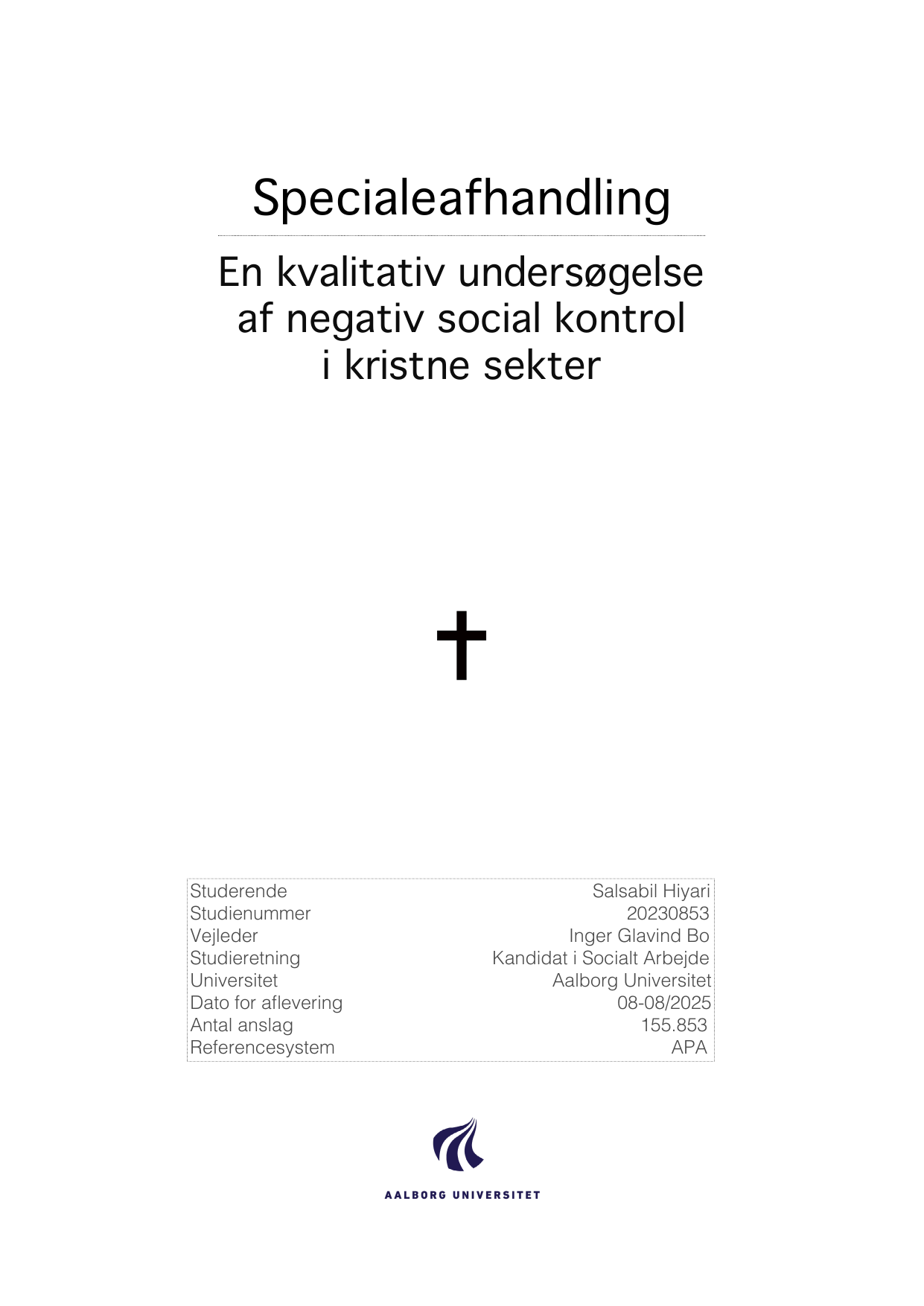
En kvalitativ undersøgelse af negativ social kontrol i kristne sekter
Oversat titel
A Qualitative Study of Negative Social Control in Christian Sects
Forfatter
Semester
4. semester
Uddannelse
Udgivelsesår
2025
Afleveret
2025-08-07
Antal sider
80
Abstract
This project explores how negative social control manifests within Christian sects during the upbringing. The main research question is: "How have former members of Christian sects experienced negative social control during their upbringing, and how did they perceive their access to help and support after leaving the sect?". The study aims to analyze underlying mechanisms of social control as experienced by former members and to contribute to knowledge within the field of social work. It also examines the participants’ experiences after leaving, focusing on access to support and the resocialization process. Nine narrative interviews were conducted with former members from different Christian sectarian environments: six from Jehovah’s Witnesses, two from the missionary community, and one from Home Mission. A narrative approach with thematic focus was used to identify recurring patterns, and the analysis is grounded in a hermeneutic philosophy of science. The first theme highlights the power dynamics participants were subjected to—through religious authorities, family, and the sect community. Divine authority (i.e., God) was often used to instill fear and moral obligation, reinforcing conformity. The second theme reveals coercive control, especially toward female participants. Many reported sexual violence and environments where men were seen as superior. These gendered experiences reflect patriarchal structures embedded in the sects and show the link between religious fundamentalism and gender-based oppression. The final theme focuses on life after leaving the sect. Most participants did not receive adequate support from public services and had to build their own network and support system. Some accessed psychological help, but none met professionals with insight into the psychological impact of sectarian life, which hindered their recovery. At last, the project questions why negative social control is largely associated with Muslim communities in Danish discourse, while similar mechanisms in Christian sects are overlooked. It discusses how cultural proximity to Christianity and integration-focused policies may explain this discrepancy, and it calls for a broader understanding of religiously based social control as a societal issue beyond specific groups.
